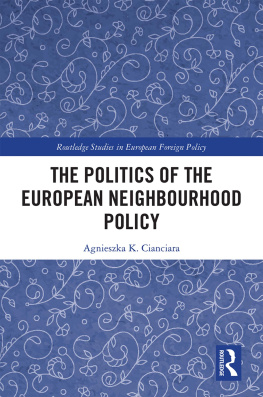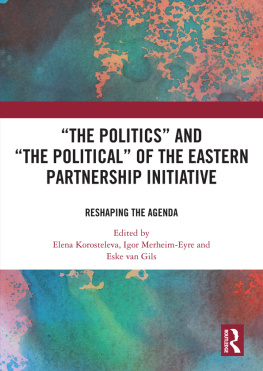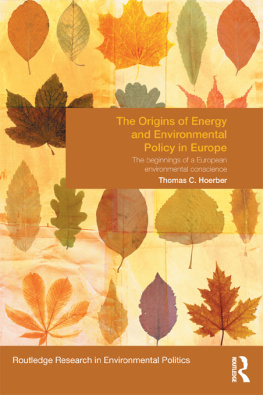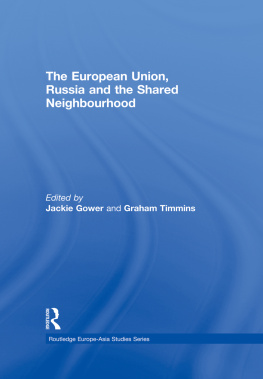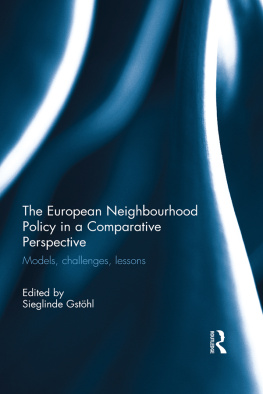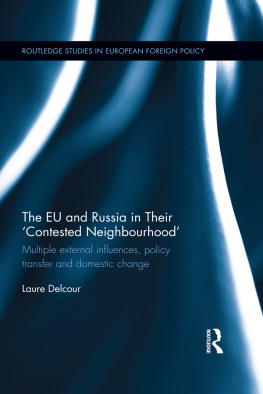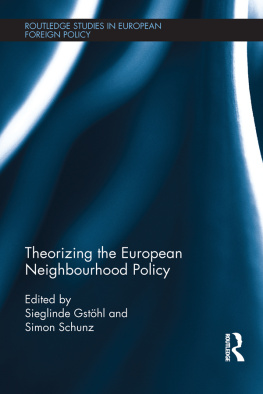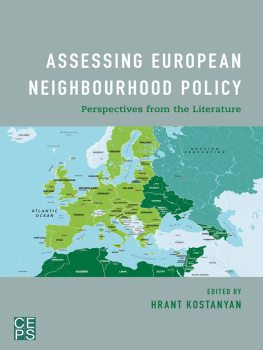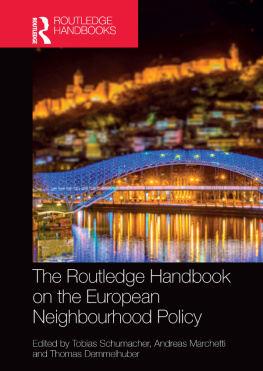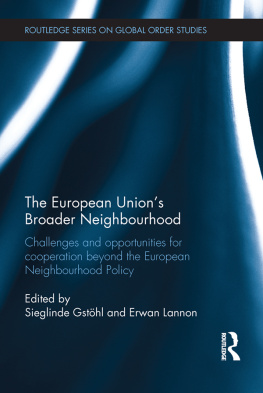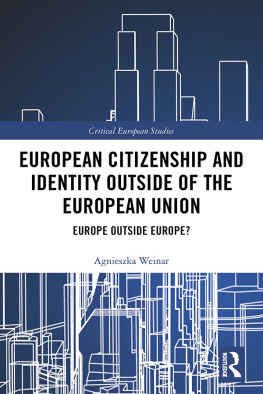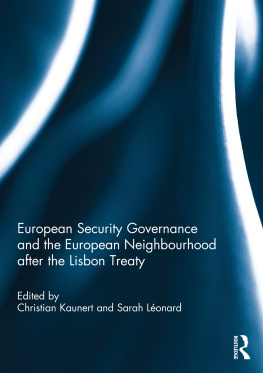The Politics of the European Neighbourhood Policy
This book examines the European Neighbourhood Policy (ENP) in the context of internal functions performed with regard to the European Union (EU) political system and its key actors.
It argues that the ENP has been formulated not only in reaction to external challenges and threats, but also in response to EU internal legitimacy needs at the systemic, institutional and actor level. Looking beyond governance approaches and the power of norms, this book follows a sociological approach to the politics of legitimation. Using Bourdieus field theory, it bridges the rationalist-constructivist divide inherent in much of ENP scholarship. While analyzing articulations of EU institutions in terms of narrative production, reproduction and reconstruction, it sheds valuable light on where the conflicting goals, ambiguity and incoherence stem from. By highlighting Developing Nations responses and usages of ENP narratives for domestic and international legitimacy-seeking, the book calls for a more outside-in perspective on EU foreign policy. With the European integration project being increasingly contested, both internally and externally, this book provides a timely focus on the topic of legitimation and delegitimation dynamics with regard to EU foreign policy.
This book will be of key interest to scholars and students of European integration and EU foreign policy, and, more broadly, EU Studies and International Relations.
Agnieszka K. Cianciara is Associate Professor at the Department of European Studies in the Institute of Political Studies, Polish Academy of Sciences in Warsaw, Poland.
Routledge Studies in European Foreign Policy
Series Editors: Richard Whitman, University of Kent, UK, and Richard Youngs, University of Warwick, UK.
This series addresses the standard range of conceptual and theoretical questions related to European foreign policy. At the same time, in response to the intensity of new policy developments, it endeavours to ensure that it also has a topical flavour, addressing the most important and evolving challenges to European foreign policy, in a way that will be relevant to the policy- making and think-tank communities.
The European Unions Evolving External Engagement
Towards New Sectoral Diplomacies?
Edited by Chad Damro, Sieglinde Gsthl and Simon Schunz
EU Induced Institutional Change in Post-Soviet Space
Promoting Reforms in Moldova and Ukraine
Ryhor Nizhnikau
The European Unions Approach to Conflict Resolution
Transformation or Regulation in the Western Balkans?
Laurence Cooley
The Proliferation of Privileged Partnerships between the European Union and its Neighbours
Edited by Sieglinde Gsthl and David Phinnemore
EUTurkey Relations
Civil Society and Depoliticization
zge Zihniolu
The Politics of the European Neighbourhood Policy
Agnieszka K. Cianciara
For more information about this series, please visit: https://www.routledge.com
First published 2020
by Routledge
2 Park Square, Milton Park, Abingdon, Oxon OX14 4RN
and by Routledge
52 Vanderbilt Avenue, New York, NY 10017
Routledge is an imprint of the Taylor & Francis Group, an informa business
2020 Agnieszka K. Cianciara
The right of Agnieszka K. Cianciara to be identified as author of this work has been asserted by her in accordance with sections 77 and 78 of the Copyright, Designs and Patents Act 1988.
All rights reserved. No part of this book may be reprinted or reproduced or utilised in any form or by any electronic, mechanical, or other means, now known or hereafter invented, including photocopying and recording, or in any information storage or retrieval system, without permission in writing from the publishers.
Trademark notice: Product or corporate names may be trademarks or registered trademarks, and are used only for identification and explanation without intent to infringe.
British Library Cataloguing-in-Publication Data
A catalogue record for this book is available from the British Library
Library of Congress Cataloging-in-Publication Data
Names: Cianciara, Agnieszka K., author.
Title: The politics of the European Neighbourhood Policy / Agnieszka K. Cianciara.
Description: Abingdon, Oxon ; New York, NY : Routledge, 2020. |
Series: Routledge studies in European foreign policy | Includes bibliographical references and index.
Identifiers: LCCN 2020003126 (print) | LCCN 2020003127 (ebook) |
ISBN 9780367425463 (hardback) | ISBN 9781003000563 (ebook)
Subjects: LCSH: European Neighbourhood Policy (Program) |
European Union countriesForeign relations.
Classification: LCC JZ1570.A5 C58 2020 (print) | LCC JZ1570.A5 (ebook) | DDC 341.242/2dc23
LC record available at https://lccn.loc.gov/2020003126
LC ebook record available at https://lccn.loc.gov/2020003127
ISBN: 978-0-367-42546-3 (hbk)
ISBN: 978-1-003-00056-3 (ebk)
Typeset in Times New Roman
by codeMantra
The research for this book was conducted between 2012 and 2017 at the Institute of Political Studies, Polish Academy of Sciences in Warsaw. Support of the National Science Centre (Poland) under the project UMO-2012/05/D/HS5/01596 is gratefully acknowledged. This book is a shortened, modified and updated English-language version of the work published in Polish: Europejska Polityka Ssiedztwa w perspektywie konstruktywizmu: aktorzy, narracje, strategie (Warsaw: Institute of Political Studies, Polish Academy of Sciences, 2017). It is also derived in part from my article published in the Journal of European Integration (2017), copyright Taylor & Francis, available online: http://dx.doi.org/10.1080/07036337.2016.1256397.
The book could have never been written without the generous support of the Library of the College of Europe in Natolin/Warsaw and its wonderful staff. I would also like to express my appreciation to all my interlocutors: politicians, diplomats, officials, think-tankers and journalists who dedicated their time and cared to share their expertise.
I am thankful to all members of the Department of European Studies at the Institute of Political Studies, especially Jzef Fiszer, Pawe Olszewski, Jakub Wdka and Ryszard elichowski, for their constructive and helpful comments on initial ideas and earlier drafts. I am extremely grateful to Grzegorz Motyka, Director of the Institute, who has supported me with genuine kindness and understanding throughout the writing process, taking many of my duties as his deputy off my shoulders so that I could concentrate entirely on the book.
I am indebted to a number of academics who shared their ideas and provided me with constructive criticism and food for thought during workshops, seminars, conferences and other exchanges, especially Pawe Borkowski, Rafaella Del Sarto, Mirosaw Filipowicz, Magdalena Gra, Tomasz Grosse, Jan Grzymski, Wolfram Kaiser, Laure Neumayer, Christian Nitoiu, Beata Piskorska, Janusz Ruszkowski, Anna Skolimowska, Andy Smith, Natasza Styczyska and Wolfgang Wessels. All mistakes and shortcomings are of course mine.
On a more personal note, I would like to thank Karolina Boroska, Agnieszka Orzelska, Sebastian Pciennik, Ireneusz Sadowski, Monika Sus and Marta Witkowska for their appreciation, encouragement and faith in me, both as scholar and as manager.

